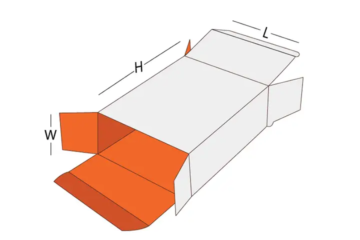After a wrongful conviction from the lower court, there is a way to knock at the door of the justice for second time. It is in shape of exercising your right to appeal in an appellate court. For this purpose you have to file an appeal case. This can be a complex matter if you are not familiar with the complexities of the legal world.
However, with clear guidance, it becomes reasonable. This article will walk you through the steps involved. It is crucial to remember that appealing a case is tied in with scrutinizing the legal parts of the decision, not about re-arguing the facts. If you’re looking for the best Supreme Court lawyer, understanding the basics of an appeal is the initial step.
Step 1: Assess Your Grounds for Appeal
Before filing an appeal, you should recognize the grounds. Only one out of every odd case is qualified for appeal. Grounds for appeal commonly incorporate legal errors made during the trial, like wrong jury guidelines or confusion of the law. Consulting with the “best Supreme Court lawyer” can help decide whether you have legitimate grounds. Lawyers gaining practical experience in appeals can give an exhaustive examination of your case.
Step 2: Filing the Notice of Appeal
The main conventional step in the appeal process is filing a Notice of Appeal. This document illuminates the court and the contradicting party that you plan to appeal the decision. Every purview has explicit standards with respect to the timeframe for filing this notice. Missing this deadline can relinquish your right to appeal. It’s fitting to look for help from the “best lawyers near me” to ensure all procedures are accurately followed.
Step 3: Preparing the Record on Appeal
The record on appeal incorporates all documents, evidence, and transcripts from the trial court. This record is crucial on the grounds that it frames the premise of your appeal. You should ensure that all important data is incorporated. A gifted appellate lawyer can help order and review these documents. Their expertise is imperative in introducing a convincing case.
Step 4: Writing the Briefs
The litigant’s brief is a composed argument submitted to the appellate court. It frames the errors made in the trial court and argues why the decision ought to be switched or changed. The appellee, or contradicting party, will likewise present a brief to argue why the trial court’s decision ought to stand.
Writing a successful brief requires a profound understanding of legal standards and phenomenal writing abilities. The “best appeal lawyers” can create a powerful argument customized to your case.
Step 5: Oral Argument
Not all appeals include oral arguments. However, in the event that the court plans one, it gives an opportunity to additional advocate for your situation. During oral arguments, lawyers from the two sides communicate their viewpoint to a board of judges and answer questions. This step can fundamentally impact the court’s decision.
Step 6: The Decision
Subsequent to reviewing the briefs and hearing oral arguments, the appellate court will settle on its choice. This can result in different outcomes: the court might affirm the first decision, switch it, or remand the case back to the trial court for additional procedures. The decision-production process can require a while. Persistence and constant correspondence with your lawyer are essential during this period.
Choosing the Right Lawyer
Choosing the right lawyer is crucial for a successful appeal. Search for attorneys with experience in appellate law. The “best Supreme Court lawyer” will have a history of dealing with comparable cases. They ought to be knowledgeable in both state and federal appellate procedures. Local information is additionally beneficial, so looking for the “best lawyers near me” can prompt finding professionals who grasp the subtleties of local courts.
Costs Involved
Appealing a case can be costly. Costs incorporate filing fees, record preparation, and attorney fees. It is essential to examine these costs forthright with your lawyer. Some lawyers might offer payment plans or possibility fee arrangements. Understanding the monetary part of your appeal can help you plan appropriately and avoid surprising costs.
Common Mistakes to Avoid
A few common mistakes can crash an appeal. Missing deadlines, neglecting to protect issues for appeal during the trial, and inadequate brief preparation are among them. To avoid these entanglements, work intimately with your attorney. The appellate attorneys can assist you with exploring these difficulties really, ensuring that your appeal is on strong ground.
Concluding Remarks
Filing an appeal is a complex however safe process. Understanding each step and it is crucial to work with experienced lawyers. if you really want the best Supreme Court lawyer the right legal representation can have a huge effect.
Firms like Brownstone Appeal Lawyers spend significant time in taking care of appeals and can give the expertise expected to successfully seek after your case. With their assistance, you can move toward your appeal with certainty and clearness.



